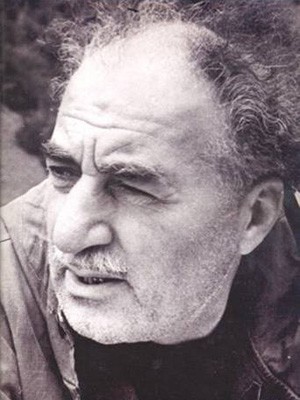Gotua Levan

Levan Gotua (March 10, 1905, Tbilisi – January 30, 1973, Tbilisi; buried in Mtskheta, in the courtyard of the Samtavro Church) was a writer. He studied at the Faculty of Social-Economics at Tbilisi State University. In February 1921, he volunteered to join the defenders of Tbilisi Bolshevik invasion. He was a member of the National Democratic Party and a leader of its youth wing. He participated in the preparations for the 1924 uprising. In August of the same year, he was arrested and imprisoned in Metekhi prison. He was released seven months later. In August 1925, he was arrested again and spent time in prisons in Tbilisi and Moscow, later being transferred to the Solovetski prison camp. His sentence was later changed to resettlement in Vladikavkaz (North Ossetia). Due to an escape attempt, his punishment was extended until 1936. He was also held in the Narim and Biysk concentration camps.
Immediately after the start of World War II, he established an underground political organization called the "Georgian National Defense Committee," for which he was once again imprisoned from 1946 to 1955 in the Vorkuta prison camp. During his time in prison, he wrote poems, diaries, the historical drama “Samsakheoba Raindisa, and most importantly, the historical novel “Gmirta Varami”, which he revised after returning from exile and published between 1958 and 1962 (second edition in four volumes, 1965–1967). The tetralogy Gmirta Varami is a significant part of Gotua’s literary legacy. The story takes place in 16th–18th century Georgia and describes the most violent era in the country’s history, highlighting the spiritual resilience of the Georgian people and the dramatic life of King Alexander II of Kakheti and his family.
It is worth mentioning the novel Mithridates (1970, only the first book was completed), which depicts the beginning of the unification of Georgian tribes in the 1st century. Historical themes occupy a central place in Gotua’s work. On this subject, he wrote t dramas: King Erekle (1942), The Invincibles (1943), David the Builder (1945), etc.; and short stories: The Sorrow of Krtsanisi (1941), The Angel of Qintsvisi (1943), The Bell of Khandzta (1945), and others.
Gotua traveled extensively and was also a mountaineer. His travel impressions are documented in the book of essays The Traveler’s Rosary (1960). His plays were staged in Georgian theaters (primarily at the K. Marjanishvili State Theater), including King Erekle (1942, directed by V. Tabliashvili), The Invincibles (1945, dir. V. Tabliashvili), David the Builder (1946, dir. V. Tabliashvili), and others. A theatrical adaptation of his novel Gmirta Varami was also staged under the same title in 1976 (directed by A. Chkhartishvili).
Literary Works: თხზულებათა კრებული 6 ტომად, თბ., 1975–82.
Literature: გ ო თ უ ა თ., გ ო თ უ ა ა., თავგადასავალი ლევან გოთუასი, თბ., 1955; ნ ო რ ა კ ი ძ ე ვ., ლევან გოთუა. ფსიქოლოგიური პორტრეტი, თბ., 1976; ლევან გოთუა. ბიობიბლიოგრაფია, შედგ. კ. რამიშვილისა და რ. მეგრელიძის მიერ. ბიოგრ. ნარკვევი ს. ხუციშვილისა, თბ., 1976.
R. Chkheidze


